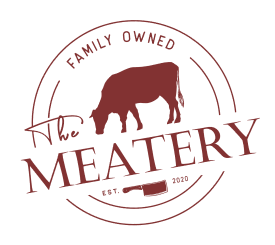Wagyu beef. The mere mention of the name conjures up images of melt-in-your-mouth marbling, a luxurious dining experience, and a hefty price tag. For good reason too! Genuine Wagyu cattle, originating from Japan, are renowned for their exceptional genetics that produce meat with unparalleled tenderness, flavor, and fat content. But with Wagyu's growing popularity, navigating the world of Wagyu steaks at your local grocery store can be a confusing experience.
This article is your guide to demystifying Wagyu at the supermarket. We'll delve into the different types of Wagyu, what to look for on the label, and buying tips to ensure you get the Wagyu experience you deserve. So, the next time you see that beautifully marbled steak enticing you from the refrigerated aisle, you'll be armed with the knowledge to make an informed decision.
The Wagyu World: A Spectrum of Marbling
First things first, it's important to understand that not all Wagyu is created equal. The term "Wagyu" simply refers to the breed of cattle – Japanese Black. However, within this breed exists a grading system based on two key factors: bloodline (genetic purity) and marbling (intramuscular fat).
Here's a breakdown of the main Wagyu classifications you might encounter:
- Fullblood Wagyu (BMS 12+): This is the holy grail of Wagyu, boasting the highest genetic purity and exceptional marbling (BMS score of 12 or above). It's the Wagyu you see in high-end steakhouses, with a price tag to match. Due to its rarity, you're unlikely to find this at your local grocery store.
- Wagyu Crosses (BMS 6-12): These Wagyu cattle are crossed with other breeds like Angus or Hereford. This results in a more affordable option while still retaining some of the Wagyu's marbling characteristics (BMS score between 6 and 12). You're more likely to find these cuts at supermarkets, often labeled as "Wagyu-style" or "Wagyu influenced."
- American Wagyu (BMS varies): Cattle raised in the US from Wagyu genetics fall under this category. The marbling score can vary greatly depending on the breeder's practices. Some prioritize pure Wagyu bloodlines, while others focus on achieving a specific marbling level for commercial purposes.
Decoding the Label: What to Look For
Now that you understand the different Wagyu classifications, let's decipher the information typically found on grocery store Wagyu labels:
- Wagyu Content: This percentage indicates the amount of Wagyu genetics in the animal. A higher percentage generally translates to more marbling and a more Wagyu-like experience.
- BMS Score (Beef Marbling Score): This number represents the level of marbling within the meat. Higher scores indicate more extensive marbling, which contributes to tenderness and flavor.
- Cut of Meat: Popular Wagyu cuts at the supermarket might include ribeye, New York strip, or filet mignon. Consider your cooking preferences and budget when choosing a cut.
- Source: Look for information on the origin of the cattle. This can give you an idea of the breeding practices and potential quality.
Here's a pro-tip: Don't solely rely on the word "Wagyu" on the label. Look for the details mentioned above to make an informed decision.
Buying Tips for Grocery Store Wagyu
So, you've found a Wagyu steak at your local store and you're ready to take the plunge. Here are some additional tips to ensure you get the best possible experience:
- Compare Prices: Wagyu crosses and American Wagyu can vary significantly in price. Compare the Wagyu content, BMS score, and cut of meat to determine the best value for your budget.
- Visual Inspection: Take a close look at the marbling. It should be evenly distributed throughout the meat, not clumped in large pockets.
- Consider Cooking Methods: Highly marbled Wagyu steaks are best cooked with methods that don't render out too much fat. Think pan-searing, grilling over high heat, or reverse searing.
- Less is More: Due to its richness, Wagyu is best enjoyed in smaller portions. Savor the flavor and tenderness, rather than aiming to fill up on a large steak.
Bonus Tip: Pair your Wagyu steak with a simple side dish that complements the flavor of the meat, such as roasted vegetables or a light salad. Don't overpower the taste of the Wagyu with strong sauces or seasonings.
The Wagyu Experience at The Meatery
While grocery store Wagyu can offer a glimpse into the world of this luxurious beef, there's no substitute for experiencing true Wagyu perfection. That's where Themeatery.com comes in. We are dedicated to bringing you the finest culinary experiences, and our selection of Wagyu is second to none.
Imagine savoring a perfectly marbled A5 Wagyu steak, sourced directly from Japan, in the comfort of your own home. At Themeatery.com, we curate a selection of the world's best Wagyu, ensuring that every bite is an unforgettable journey for your taste buds. Our commitment to quality and freshness guarantees that you receive the highest grade Wagyu, expertly prepared and delivered right to your doorstep.
But the Wagyu experience extends beyond the steak itself. At The Meatery, we believe in creating a complete culinary adventure. Our website offers a wealth of resources, including cooking tips, wine pairings, and recipe ideas to elevate your Wagyu experience. You'll find everything you need to transform your home into a Michelin-star restaurant.
So, why settle for the uncertainty of grocery store Wagyu when you can indulge in the true taste of luxury with Themeatery.com? Discover the difference that genuine A5 Wagyu can make in your culinary journey. Visit our website today and embark on a gastronomic adventure that will leave you craving more.










